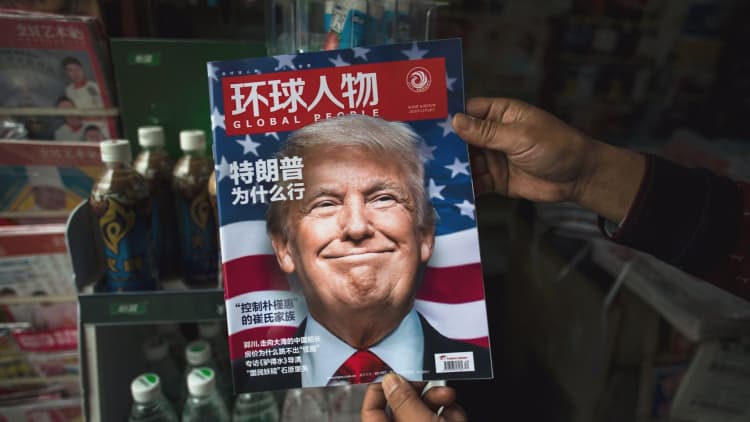German chancellor Angela Merkel said on Wednesday that she was prepared for "difficult negotiations" at this week's G20 summit in Hamburg, where she is struggling to hold the group together in the face of conflicts between European states and US President Donald Trump over trade and climate change.
But she and Chinese president Xi Jinping, who was visiting Berlin in advance of the G20, took the opportunity to signal that international economic cooperation would continue – even if Mr Trump stood on the sidelines.

Under agreements approved by the two leaders, Germany and China will jointly build a hydropower station in Angola, and Siemens, the German electronics group, is to cooperate with Chinese counterparts in digitalisation and aerospace. Meanwhile, Berlin Zoo has taken custody of two Chinese pandas, which the two leaders were later due to visit in their new home.
Ms Merkel told journalists Berlin would push for the completion of talks on an EU-China investment treaty which would one day lead to a full free trade agreement. But she said it was important that there was equal treatment, a reference to the difficulties faced by EU companies accessing the Chinese market.
Mr Xi said: "Chinese-German relations are now about to have a new start where we need new breakthroughs."
In a sign of the nervousness surrounding the visit, neither leader mentioned Beijing's decision to allow liver cancer experts from Germany, the US and other countries to join a medical team treating Nobel Peace Prize Laureate Liu Xiaobo.
The two leaders' press statements together lasted less than five minutes and there was no opportunity ask questions.
Ms Merkel's officials are sweating to produce acceptable G20 agreements in the face of Mr Trump's decision to pull out of the Paris climate accord and his criticisms of free trade.
The chancellor has repeatedly said that the US remains an important partner but also criticised Mr Trump's isolationist approach. In an interview with Die Zeit newspaper, published on Wednesday, she said: "While we are looking at the possibilities of cooperation to benefit everyone, globalisation is seen by the American administration more as a process that is not about a win-win situation but about winners and losers."
More from Financial Times:
Mexico urged to seek ambitious Nafta upgrade
G20 economies buck Trump's protectionist trade tone
An EU-Japan pact shows how free trade strides on
WATCH: Why Trump's foreign policy is on a collision course in the South China Sea


